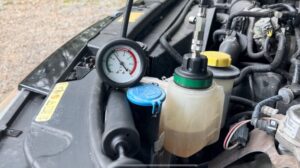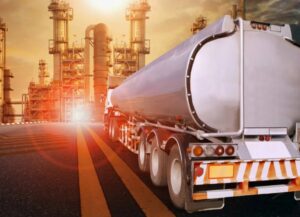Kerosene in Automotive: Uses, Benefits & Safety Tips You Need to Know
Kerosene, a versatile hydrocarbon fuel, has found applications beyond household heating and aviation. In the automotive sector like kerosene car, it serves as an alternative fuel, lubricant, and cleaning agent. This guide explores its uses, advantages, potential risks, and essential safety measures for vehicle owners and mechanics.
What is Kerosene?
Kerosene (also called paraffin oil) is a refined petroleum product with a flash point between 100°F and 150°F (38°C–66°C). kerosene uses for It burns cleaner than diesel and gasoline, making it useful in:
Heating systems
Jet engines (Jet A-1 fuel)
Automotive applications
Uses of Kerosene in Automotive Applications
1. Alternative Fuel for Diesel Engines
Some older diesel engines can run on kerosene, especially in cold climates where diesel may gel.
Pros:
Lower freezing point than diesel
Cleaner combustion with fewer deposits
Cons:
Reduced lubrication (may damage fuel pumps & injectors)
Lower energy density (reduces mileage)
2. Fuel Additive for Cold Weather
Kerosene is sometimes mixed with diesel (10-20%) to prevent wax formation in winter.
Helps improve cold-weather performance without major engine modifications.
3. Engine & Parts Cleaning
Effective degreaser for removing oil, carbon buildup, and grime.
Used for cleaning:
Fuel injectors
Carburetors
Engine blocks
4. Rust Prevention & Metal Protection
Coating metal parts with kerosene prevents oxidation and corrosion during storage.
Common in classic car restoration and long-term vehicle storage.
5. Emergency Fuel Source
In remote areas or emergencies, kerosene can serve as a temporary fuel for generators and vehicles.
Benefits of Using Kerosene in Vehicles
✔ Cleaner Burning Than Diesel
Produces less soot and particulate emissions compared to conventional diesel.
✔ Better Cold-Weather Performance
Prevents fuel line freezing in extreme temperatures.
✔ Cost-Effective in Some Cases
Can be cheaper than diesel in certain regions.
✔ Versatile Maintenance Uses
Doubles as a solvent and preservative for automotive parts.
Safety Tips When Using Kerosene in Automotive Applications
⚠️ Storage & Handling
Store in approved, sealed containers away from heat sources.
Keep away from open flames and sparks (high flammability risk).
⚠️ Engine Compatibility Check
Not all diesel engines can safely use kerosene—consult the manufacturer before use.
Prolonged use may damage fuel pumps and injectors due to lower lubricity.
⚠️ Proper Ventilation When Cleaning
Use in well-ventilated areas to avoid inhaling fumes.
⚠️ Fire Safety Measures
Keep a Class B fire extinguisher (for flammable liquids) nearby.
Never smoke near kerosene storage or usage areas.
⚠️ Skin & Eye Protection
Wear gloves and goggles when handling to prevent irritation.
Kerosene vs. Diesel vs. Gasoline: Key Differences
| Feature | Kerosene | Diesel | Gasoline |
|---|---|---|---|
| Flash Point | 100°F–150°F | 125°F–180°F | -45°F (–43°C) |
| Energy Density | Lower than diesel | High | Highest |
| Lubricity | Low (needs additives) | High | N/A |
| Cold Resistance | Excellent | Moderate | Poor |
| Common Use | Heating, jets, some engines | Trucks, heavy machinery | Cars, motorcycles |
Safety Tips When Using Kerosene in Automotive Applications
While kerosene has benefits, improper use can lead to engine damage, fire hazards, and health risks. Follow these safety guidelines:
1. Storage and Handling
Store kerosene in approved, sealed containers away from heat sources.
Use metal or high-density polyethylene (HDPE) containers to prevent leaks.
Keep away from open flames and sparks.
2. Engine Compatibility
Do not use kerosene in gasoline engines—it lacks proper volatility for spark ignition.
In diesel engines, limit kerosene to 20% of the fuel mixture unless the manufacturer approves higher ratios.
3. Ventilation When Using as a Cleaner
Kerosene fumes can be toxic—always work in a well-ventilated area.
Wear gloves and eye protection to avoid skin contact.
4. Fire Safety Measures
Keep a fire extinguisher (Class B) nearby when handling kerosene.
Never use kerosene near welding or smoking areas.
5. Environmental Considerations
Avoid spills—kerosene can contaminate soil and water.
Dispose of used kerosene at approved hazardous waste facilities.
Final Thoughts
Kerosene for car remains a valuable but underutilized fuel in automotive applications. From cold-weather diesel performance to engine cleaning, it offers unique benefits when used correctly. However, safety precautions are crucial to avoid hazards.
By understanding kerosene vehicles uses, advantages, and risks, vehicle owners and mechanics can make informed decisions about kerosene in automotive maintenance and emergency situations.
FAQs
Kerosene is primarily used as fuel in jet aircraft (as jet fuel) and in kerosene lamps and heaters. It also powers some tractors, older diesel engines, and specific military vehicles.
Kerosene is a versatile liquid fuel commonly used for:
Aviation: As the primary component of jet fuel (Jet-A, Jet A-1) for turbine engines in aircraft.
Heating & Lighting: In kerosene heaters, lamps, and stoves, especially in areas without reliable electricity.
Industrial & Agricultural: As a fuel for industrial furnaces, power generators, and some tractors with older diesel engines.
Other Uses: As a solvent and as the base for certain insecticides. Historically, it was also used in rockets.
No, most gasoline and diesel engines are not designed for pure kerosene. It can cause poor combustion, engine knocking, and damage.
Yes, kerosene can help dissolve deposits in fuel injectors but should be used cautiously to avoid seal damage.
Yes, kerosene has a higher flash point, making it less volatile than gasoline. However, it still poses fire risks.
No, mixing kerosene with gasoline can lead to engine failure due to improper combustion.

Radiator Stop Leak UAE: Quick Fix for Vehicle Cooling System Leaks
Radiator Stop Leak UAE: Quick Fix for Vehicle Cooling System Leaks Discover More Introduction: The Unforgiving UAE Climate and Your Vehicle’s Lifeline The United Arab Emirates’ automotive landscape is defined by extremes. Ambient temperatures that regularly surpass 45°C (113°F), coupled with intense urban congestion and long, high-speed desert drives, create a perfect storm of thermal stress for every vehicle. In this environment, your engine cooling system is not merely a subsystem; it is the single most critical component preventing catastrophic engine failure.

What Type of Transmission Oil in UAE Does My Car Need? Your Complete Guide
What Type of Transmission Oil in UAE Does My Car Need? Your Complete Guide Discover More Navigating the vast, sun-baked highways of the United Arab Emirates—from the dynamic urban sprawls of Dubai and Abu Dhabi to the majestic desert dunes and the tranquil mountain passes of the Hajar range—places extraordinary mechanical and thermal stress on every component of your vehicle. While conscientious drivers often prioritize engine oil changes, the vital lifeblood safeguarding the transmission, the complex heart of your car’s

Guide to UAE Turbine Oil Selection Application & Management for Industrial Facilities
Guide to UAE Turbine Oil Selection, Application, and Management for Industrial Facilities Discover More In the hyper-competitive industrial landscape of the United Arab Emirates, where operational excellence directly translates to economic advantage, turbine lubrication represents a critical nexus of reliability engineering and strategic asset management. This comprehensive guide, developed with technical insights from Rumanza Lubricants, provides an unprecedented deep dive into the science, selection criteria, and life-cycle management of turbine oils specifically engineered for the extreme operating conditions of the

Synthetic vs. Mineral Hydraulic Oil in UAE : Which is Best for Your Operation?
Synthetic vs. Mineral Hydraulic Oil in UAE : Which is Best for Your Operation? Discover More Across the dynamic landscape of the United Arab Emirates—from the megaprojects of Dubai Marina to the intricate conveyor systems of Jebel Ali Port, from the massive hydraulic shovels in Al Dhafra quarries to the precision automated lines in Abu Dhabi’s industrial cities—the silent, powerful force of hydraulics is indispensable. These systems convert fluid power into monumental force and precise motion. At the core of

What is a Pour Point Depressant? | Benefits, Uses & How It Works Mechanism
What is a Pour Point Depressant? | Benefits, Uses & How It Works Mechanism Discover More In the intricate world of lubricant formulation, few additives play as critical yet understated a role in cold-weather operability as Pour Point Depressants (PPDs). These specialized chemical compounds are the linchpin that prevents machinery from seizing up when temperatures plummet. This in-depth guide goes beyond the basics, exploring the sophisticated chemistry, detailed mechanism, nuanced benefits, and practical considerations of PPDs. We will also examine the

Guide to Gasoline Engine Oils for UAE’s Extreme Climate: Engineering Peak Performance
Gasoline Engine Oils for UAE’s Extreme Climate: Engineering Peak Performance Discover More In the heart of the Arabian Peninsula, the United Arab Emirates stands as a testament to human ambition, with its engineering marvels and endless highways. Yet, this environment of soaring achievement is also one of the most punishing on Earth for machinery. For your vehicle—whether a nimble city sedan, a powerful family SUV, or a high-performance sports car—the UAE’s climate is a relentless adversary. The choice of engine